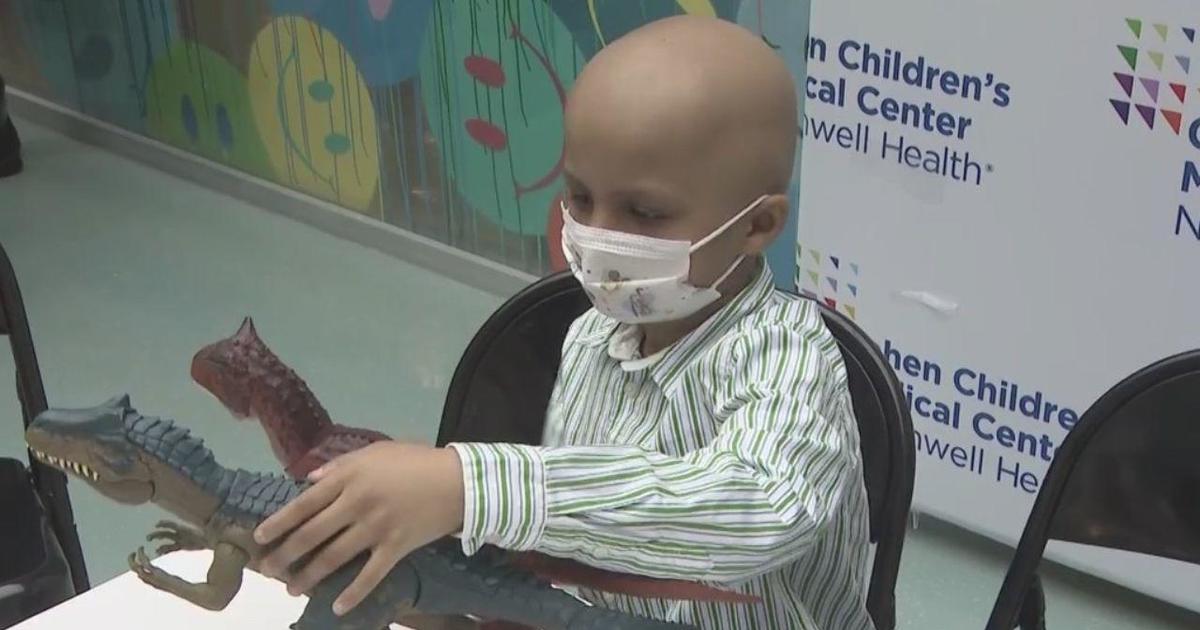Liquid Biopsies Could Serve As Major Breakthrough In Fight Against Cancer
NEW YORK (CBSNewYork) -- There has been a potential breakthrough in the fight against cancer.
Instead of the common biopsy, doctors have been working on blood tests that can detect a cancer recurrence at the earliest, most treatable stage.
As CBS2's Dr. Mac Gomez explained, it's called a liquid biopsy, it's a way to detect cancer without CT or MRI scans.
Surgical biopsies require an actual lump or tumor to sample and by then the cancer is usually made up of billions of cells -- the better to find and treat cancer when it's just a handful of cells.
Researchers at Johns Hopkins Kimmel Cancer Center said they've developed a blood test that can accurately predict whether some early stage colon cancer patients will have a recurrence.
"The idea is that those patients likelier to recur should in fact get additional therapy which could be lifesaving," Dr. Bert Vogelstein, Johns Hopkins Kimmel Cancer Center, said.
Dr. Vogelstein said the new test, known as a liquid biopsy, detects fragments of DNA linked to cancer circulating in the blood. It could help doctors determines which colon cancer patients would need chemotherapy after surgery.
"This is the optimum time to treat patients, when there are a tiny amount of cells, too low to be seen on x-ray studies," Dr. Vogelstein said.
No DNA-based tests for cancer are currently FDA approved, but universities and private companies are racing to perfect the technology.
Liquid biopsies rely on the fact that even when a tumor is growing, many cancer cells are dying off. Those dying cells spill their abnormal DNA into the blood. In the Hopkins study, doctors already knew the specific mutated cancer DNA to look for from the original tumor surgery -- they were looking for the earliest signs of a recurrence.
"Liquid biopsies based on genetic alterations are the next generation of cancer tests," Dr. Vogelstein said.
The new study looked at 230 stage two colon cancer patients from Australia, but researchers said more study is needed to confirm the findings.
Some of the patients in the study developed a recurrence that the blood test did not pick up, however the study showed that when there was tumor DNA in the blood a recurrence was very likely.



